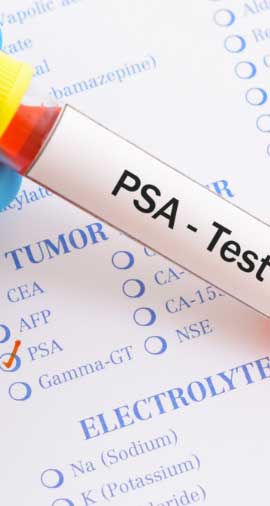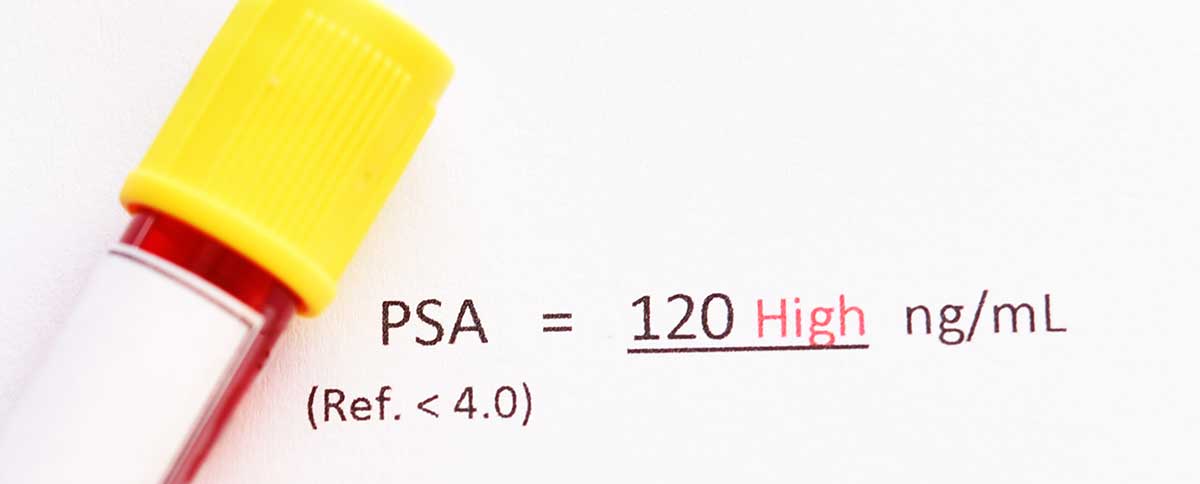Prostate Specific Antigen (PSA) is a protein produced in the ducts of the prostate. PSA is released with the ejaculatory fluid (semen) and makes thickened semen runnier, which helps sperm travel more easily2.
PSA is produced by both normal and malignant prostate cells, and is absorbed into the bloodstream. The amount of PSA found in the blood stream can be measured and aid in providing information regarding prostate health2.
This page is a resource to help you learn more about PSA testing so that you can take better control of your health and make the decisions that are right for you.

PSA testing, or a PSA blood test measures the amount of PSA found in the blood. The PSA level that is considered normal for an average man increases with age and can range from 0 to 4 nanograms per milliliter (ng/ml)2.
PSA levels in the blood increases with prostate size, age, and can also increase with prostate disease such as BPH, prostate cancer and prostatitis (infection of the prostate)2. The PSA test can be combined with a digital rectal exam for a more accurate guide to early cancer detection. A PSA test might be conducted to confirm a diagnosis of prostate cancer, for physicians to plan a procedure roadmap to manage or remedy a prostate condition, or for doctors to monitor if prostate cancer has returned1.
PSA testing can be an option for men who may meet certain personal risk factors for prostate cancer such as genetics. When your PSA levels are high, your doctor can work with you to determine what the causes are and go over all follow-up options and next-steps. It is important to note that there are a variety of limitations associated with PSA testing as it may not be the right course of action for everyone. Your doctor can help you decide your risk levels and what testing is right for you1.

Follow-up care, such as additional tests or a biopsy may be required if it is established that your PSA levels are high after a PSA test. Here are some examples of additional testing:
1. Canadian Cancer Society. (2020). Prostate-Specific Antigen (PSA) Test. Retrieved from: https://www.cancer.ca/en/cancer-information/diagnosis-and-treatment/tests-and-procedures/prostate-specific-antigen-psa/?region=on
2. National Cancer Institute. (2011, August). Understanding Prostate Changes. Retrieved from: https://www.cancer.gov/types/prostate/understanding-prostate-changes/prostate-booklet.pdf.